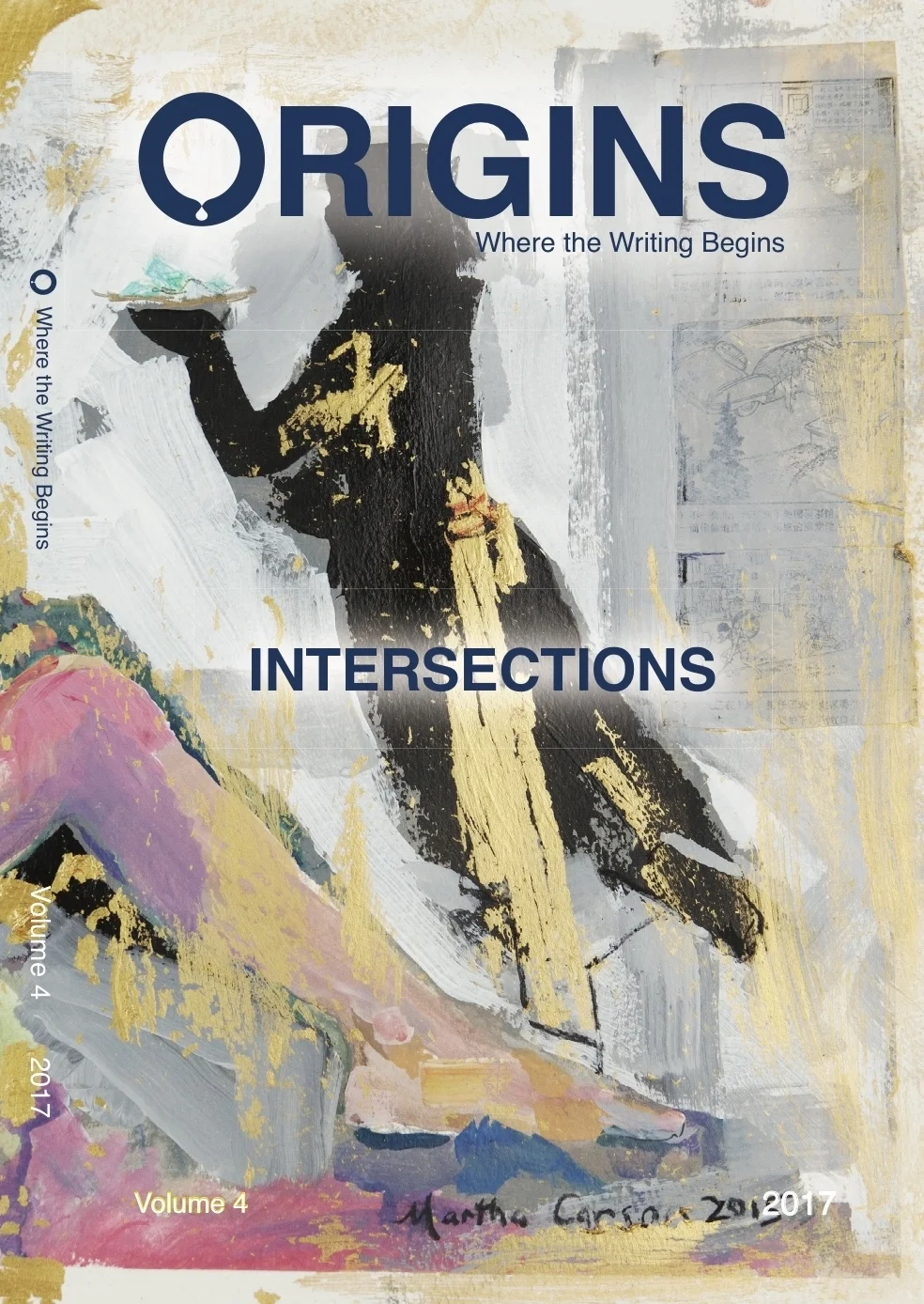Intersections, Vol. 4
Intersections, Vol. 4
In common usage, an intersection is a place where different roads meet, and this issue of Origins explores how we all intersect in ways both physical and abstract, through the language of action and ideas.
Intersections can be historical, cultural, and familial as explained by Min Jin Lee in her interview about her latest novel, Pachinko. They can be connections or collisions, the start of something new or an inevitable ending. In the poem, “Catcalled by Janus,” the poet invokes a mythic patron of intersections, the Roman god of beginnings, endings and transitions. The poem names a “split of past and present and despair,” a recalled moment of profound loneliness.
The language of these intersections can jar but also embody love and hope. In “mixed marriages,” Dani Oliver describes a marriage between a Christian and Jew, whose children were raised “in the smudge where god is.” But in “Men and Their Masters” the juxtaposition between “jaundice-eyed labor of men” and “the landlord looking with boredom at the sky” is an indictment.
There are crossroads where foreign cultures meet in remote and extraordinary circumstances, as in the story where marathon runners from Detroit are flown to compete in a mining town/Inuit settlement above the Arctic Circle. In another story, the crossroad is a highway out of town, which presents the narrator on his Harley with the psychological choice between fleeing family difficulties and returning home to face them. Intersections are also enactments of aspiration, as in “Sweeper Woman,” in which a public park is the stage for the internal drama of a low-caste woman, who longs to be recognized by a privileged female jogger, though it means forcing physical confrontation.
An intersection can be anywhere separate paths cross or meet, and, perhaps for the length of a compressed line in a poem or the ambiguous pause in a fictional narrative, our human conflicts and wonders coexist, even if for a moment’s transit.
Susan Agar, Associate Editor
